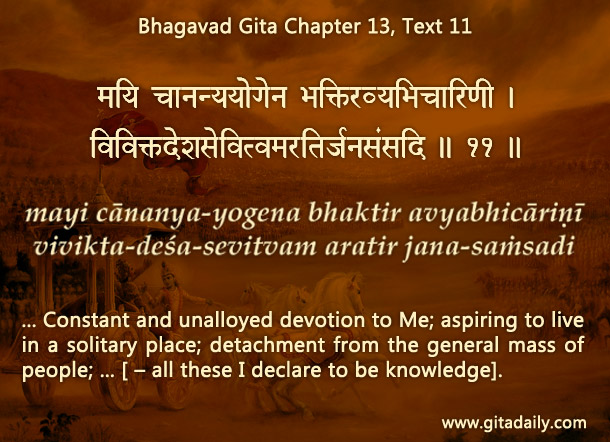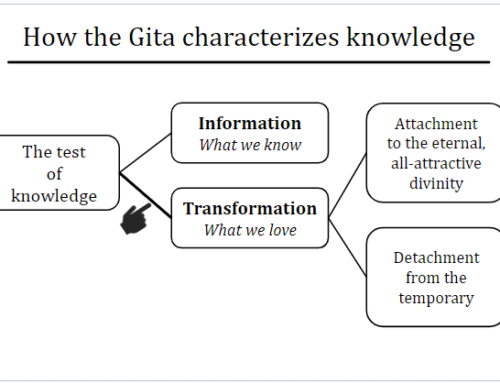Suppose warriors at the end of a day of heavy fighting return to the security of their camp. Just as they relax, they are attacked by enemy soldiers who had sneaked into the camp and had been lying in wait for their victims to lower guard.
When we practice spiritual life, we enter into war against the forces of illusion. These forces attack our consciousness through the world’s many tempting objects. Knowing this attack-strategy, we stay on guard when we are amidst such objects. Pertinently, the Bhagavad-gita (13.11) recommends living in seclusion, away from worldly association. Still, seclusion alone doesn’t guarantee protection. The Gita (06.06) warns that the mind, when uncontrolled, acts as our worst enemy. Through this inner enemy, the forces of illusion can attack us even when we are in seclusion. By activating our memories of past indulgences, these forces may submerge us mentally in immorality.
Spiritual association often protects us by placing us among devotees who remind us of our values and aspirations. Still, association, like seclusion, doesn’t itself guarantee protection. If our mind is uncontrolled, it can make us commit offenses against devotees, thus getting us into another, often-bigger form of trouble.
The point is that we can’t assume we are safe just because we are away from sense objects or because we are in association – we need to control our mind. We can best control the mind by keeping it constructively engaged. Such engagement can be firstly direct devotional service to Krishna and secondly other constructive activity done in a mood of devotion. How much seclusion or association we need to absorb our mind will vary depending on how introvert or extrovert we are.
By taking ownership of the responsibility to keep ourselves devotionally engaged and absorbed, we arrange best for our spiritual safety.
To know more about this verse, please click on the image
Explanation of article:
Podcast:
Audio Player
Download by “right-click and save”



Thank you prji for so nicely explaining the nature of mind.
Thank you very very much!
if you devot to JAPA then GOD protects you even from your worst enemy always